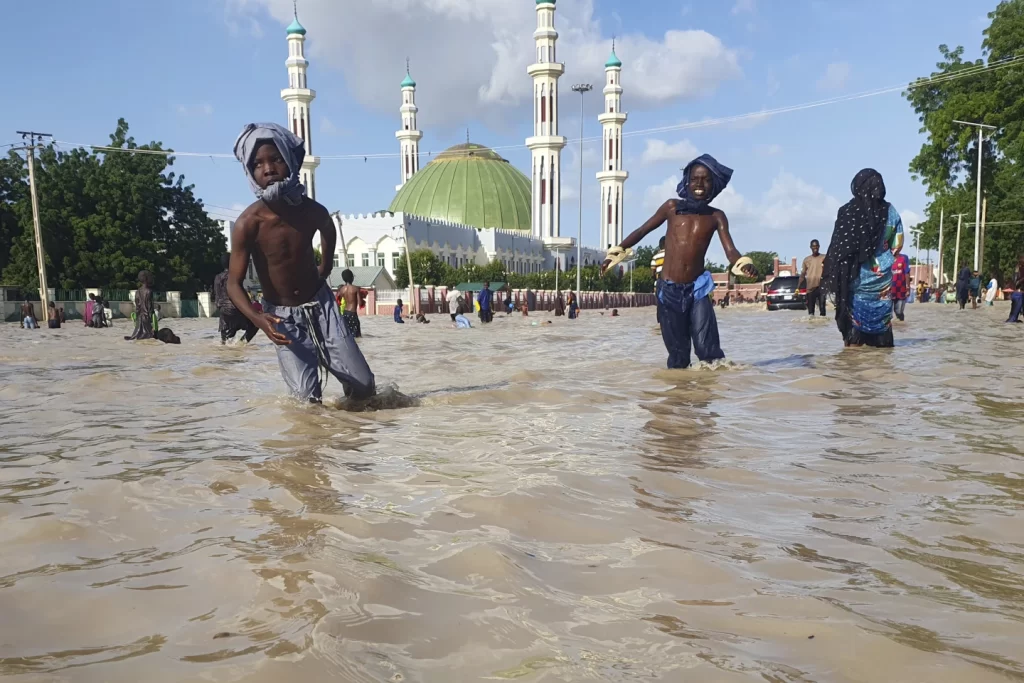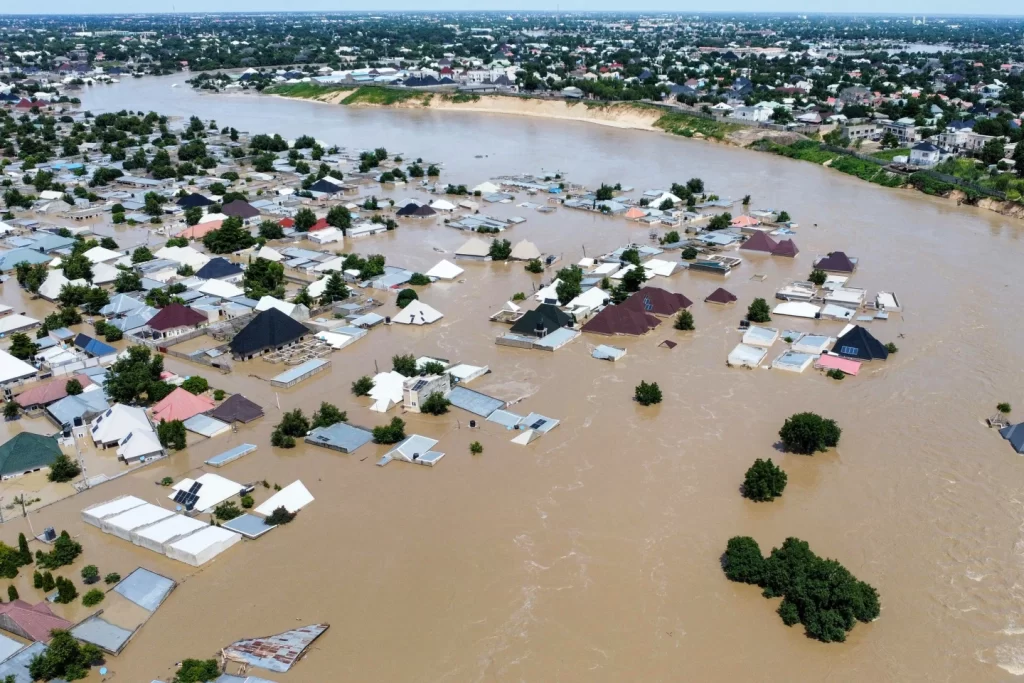Water is flooding everywhere!” These frantic cries echoed through the night in Maiduguri, as torrential rains unleashed the most catastrophic floods in decades across West and Central Africa. The deluge has claimed over 1,000 lives and displaced millions, leaving a trail of destruction in its wake.

In Nigeria’s Borno state, already battered by years of Boko Haram insurgency, the floods have wreaked havoc on an unprecedented scale. Saleh Bukar, 28, recounted the terrifying midnight evacuation: “They were shouting: ‘Everybody come out, everybody come out!’ Older people and people with disabilities did not know what was going on, and some were left behind.”
The death toll continues to mount: at least 230 in Nigeria, 265 in Niger, 487 in Chad, and 55 in Mali. Over four million people have been affected region-wide, tripling last year’s figure, according to UN reports.
Maiduguri, Borno’s capital, has been transformed into a temporary river. Crucial infrastructure collapsed, including two major dam dikes, releasing 540 billion liters of water into the city. The local prison’s walls crumbled, allowing hundreds of inmates to escape.
Survivors describe chilling scenes. Aishatu Ba’agana, a mother of three, had to abandon her newborn as floodwaters overwhelmed her home. “I yelled for my family to help me get my child, but I don’t know if they were able to. I haven’t seen any of them since,” she sobbed at a displacement camp.

In Niger, over 841,000 people have been impacted. Harira Adamou, a 50-year-old single mother in Agadez, watched her mud hut disintegrate. “It’s a big risk to live in a mud hut, but we don’t have the means to build concrete ones,” she explained, highlighting the vulnerability of traditional housing.
The World Meteorological Organization warns that sub-Saharan Africa faces adaptation costs of $30-50 billion annually over the next decade due to extreme weather events. Despite contributing minimally to global greenhouse gas emissions, Africa remains among the most vulnerable regions to climate change impacts.
International aid efforts are ramping up, with the World Food Program providing emergency assistance and USAID contributing over $3 million in humanitarian aid. However, many flood victims, like Bukar, say they’ve been left to fend for themselves.
As forecasts predict more rain, authorities warn of potential further flooding. The disaster has exacerbated existing humanitarian crises, particularly in areas already grappling with insurgency and economic instability.
Governor Babagana Zulum of Borno state urgently appealed for international help: “Our resources are stretched to the limit, and we cannot do this alone.”
The floods serve as a stark reminder of the growing climate crisis and its disproportionate impact on vulnerable regions. As West and Central Africa grapple with this unprecedented disaster, the urgent need for global climate action and support for adaptation measures has never been clearer.
Credit: AP



